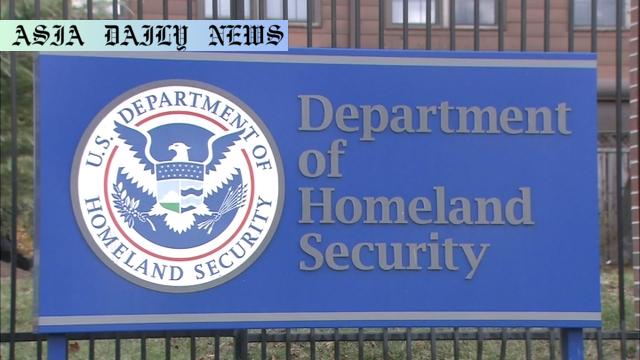Immigration Policy: A sudden reversal threatens hundreds of thousands of vulnerable migrants residing lawfully in the US.
The US revoked the legal status of 530,000 migrants.
Affected individuals are from Cuba, Haiti, Nicaragua, and Venezuela.
Parole recipients must leave by April 24 unless they hold lawful status.
This decision raises concerns about humanitarian fallout and family disruptions.

The US Ends Legal Protection for 530,000 Migrants
In a move that has drawn widespread concern and criticism, the US has announced the revocation of temporary legal standing for over 530,000 migrants from Cuba, Haiti, Nicaragua, and Venezuela. These individuals, initially admitted under the categorical parole programs introduced in 2022 as part of a humanitarian decision by the Biden administration, are now required to leave the country by April 24, unless they find another legal basis to stay.
The decision, orchestrated by the Trump administration, marks a significant reversal of President Biden’s policies and signals a return to strict immigration reforms. The Department of Homeland Security (DHS) described the program as supporting “inadmissible aliens,” a term that reflects the administration’s stance on the perceived misuse of taxpayer dollars to sponsor such migrants. This move has been sharply criticized by immigrant advocacy groups, who argue that revoking legal status for such a large number of people is unnecessary and creates widespread chaos within affected communities.
Humanitarian Concerns and Family Disruptions
Immigrant support networks have described the announcement as a policy that risks ripping families apart. Many of the parolees had rebuilt lives in the United States, securing employment, enrolling children in schools, and contributing to local economies. Forcing deportation, it is argued, is not only heart-wrenching for the families involved but also disruptive to the broader fabric of community life.
The humanitarian aspect of the earlier policy introduced in 2022 cannot be overlooked. The categorical parole system was a structured response to upheavals in the migrants’ native countries experiencing social, political, and economic unrest. The US had positioned itself as a sanctuary, providing hope and opportunity. This recent shift backtracks on that commitment, leaving countless individuals and families in limbo.
A Pivotal Moment for US Immigration Policy
The revocation of legal protections for such a significant number of migrants highlights the need for comprehensive discourse on immigration policy in the United States. At the core of the issue lies the plight of vulnerable populations affected not only by the decision itself but by the larger contentious debates fueling policy changes. Critics of the Trump administration’s decision warn that such measures may undermine the nation’s position on humanitarian issues altogether and cast doubt on its prior commitments.
Meanwhile, proponents argue that stricter immigration policies ensure greater order and security within the country. They cite economic strains and concerns over national resources as supporting evidence for tightening immigration pathways. Regardless of one’s viewpoint, what remains evident is that stability for families and communities is at risk under this directive.
April 24 is now a pivotal date for the lives of over half-a-million people. As the clock ticks down, uncertainty looms large for migrants trying to navigate what comes next. Rolling back large-scale protections is a reminder of the volatile nature of immigration policy and its real-world consequences for those with hopes for a better future.
What Lies Ahead?
Efforts from immigrant advocacy groups to push back against the ruling have already intensified. Calls for an alternative to mass deportation abound, with proposals for extensions, reinstituting humanitarian protections, or even providing pathways to citizenship gaining traction among activists. These high stakes underscore the broader dilemma shaping the US immigration debate – a tightrope walk between enforcing border policies and honoring the ethos of a nation that once championed its identity as a beacon for the oppressed.
Commentary
Immigration Policy: A Divisive Issue
The decision to revoke the legal protections afforded to over half a million individuals from nations grappling with crisis marks a stark turning point in the United States’ immigration narrative. The move emphasizes a policy shift toward rigidity, leaving little room for nuance or human considerations. One cannot help but empathize with the plight of these affected families, caught in a political whirlwind that upends their livelihoods and hopes.
The Human Cost of Political Decisions
Every policy choice carries real consequences for human lives. In this case, the burden often falls disproportionately on individuals who sought refuge, work, and a better future in the United States. Over the years, immigration debates have swung between compassion and securitization, a pendulum that often neglects the personal stories behind the statistics. These migrants are not just numbers; they are parents trying to keep their families together, they are workers contributing to local businesses. Revoking lawful protections without providing viable alternatives is a short-sighted strategy that overlooks the economic and social integration these individuals have managed to achieve.
Broader Implications and Moving Forward
What makes this moment particularly alarming is the potential precedent it sets for future administrations. Policies viewed as morally questionable have the potential to erode the faith people hold in America as a land of opportunity and upholdable dreams. However, what is most alarming is the timing given that no clear plan is provided for humane or lawful pathways forward for the affected individuals. Transparency and foresight should guide the future of US immigration policy to avoid unnecessary pain and societal disruptions.
Ultimately, addressing immigration challenges isn’t about making harsh declarations or issuing sweeping removals. It is about forming policies grounded in compassion, recognizing humanity, while addressing legitimate governance considerations. Can the US reconcile these differing expectations? Only time will tell.


